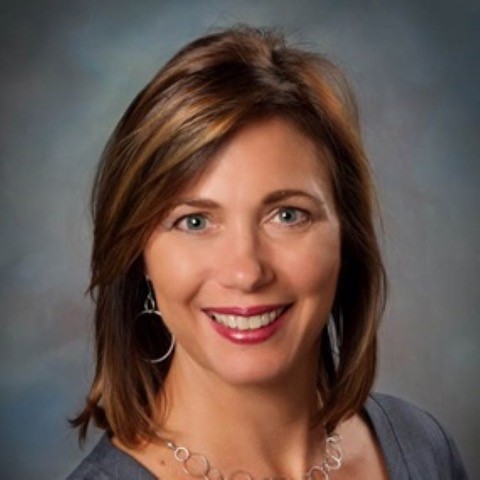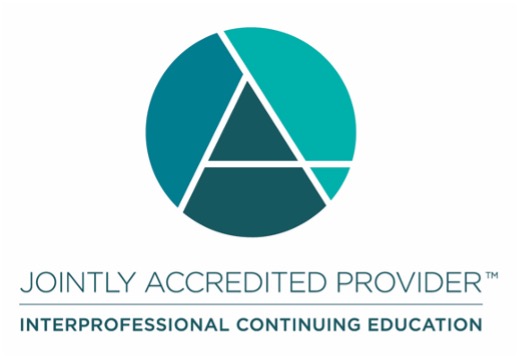Webinar: The Blue Zones in Practice: Lessons from Centenarians Around the World

Mounting evidence implicates sedentary lifestyles and the pervasive influence of the "Western Diet" as major contributors to the prevalence of chronic diseases in the US. In stark contrast, centenarians around the globe have successfully fended off or navigated through chronic conditions like cancer, heart disease, or stroke, all while maintaining a remarkable quality of life well into their eleventh decade.
Insights gleaned from centenarians can inform healthcare practitioners when designing more effective interventions, particularly when they draw from data collected and research of the Blue Zones, the places in the world with the healthiest, longest-living populations.
Join Sue Stillman Linja, RDN, LD, SeAnne Waite, PhD, RDN, LD, and Jennifer T. Shalz, MD, on September 25, 2024 from 2:00-3:30 p.m. ET, for a webinar that, through the translation of the habits of centenarians into actionable strategies for lifestyle medicine and professional practice, attendees will acquire invaluable tools they can use to enrich their interactions with clients. This interactive presentation will introduce findings from in-depth interviews with centenarians worldwide, focusing on their eating patterns, favorite foods/recipes, physical activity, and social/emotional habits. Explore current evidence-based research alongside qualitative data collected during visits to Sardinia, Italy; Ikaria, Greece; Okinawa, Japan; Singapore; and the United States. Through interdisciplinary team approaches, learn strategies that will not only enhance patient care but also contribute to the promotion of quality health and longevity across all age groups.
Learning Objectives
After completing this continuing education activity, health care professionals will better be able to:
- Identify the most common diet, health, and lifestyle themes of centenarians from the Blue Zones and other regions around the world.
- Describe centenarian diet and lifestyle quick tips that practitioners can use to promote overall health and longevity for clients of all ages.
- Translate the six centenarian themes into strategies surrounding activity, socialization, gratitude, and dietary patterns, to help clients overcome health challenges and promote positive behavior change.
- Discuss how an interdisciplinary approach can improve clients’ health and longevity through the intersection of yesterday and today.
Additional Information
 Sue Linja, RDN, LD, was born with a passion for nutrition and aging. She says her biggest honor in her 35-year career as a registered dietitian has been to positively touch the lives of thousands of older adults as she consulted with over 200 healthcare entities in 12 states.
Sue Linja, RDN, LD, was born with a passion for nutrition and aging. She says her biggest honor in her 35-year career as a registered dietitian has been to positively touch the lives of thousands of older adults as she consulted with over 200 healthcare entities in 12 states.
Sue has been widely sought out as a speaker for nutrition and aging seminars and has worked on multiple nutrition publications and articles in this area. Some highlights include investigative research on the nutritional habits of centenarians, co-authoring The Alzheimer’s Prevention Food Guide and presenting a Tedx Talk titled, The Road to 100.
Sue currently holds leadership positions in the Idaho Board of Medicine, Academy of Nutrition and Dietetics, Idaho Health Care Association, Hormel Health Labs Advisory Council and the University of Idaho Food/Nutrition and Dietetics Board.
Aging gracefully is important to Sue - she hopes to reach her 100th birthday by maintaining close relationships and eating a mostly plant-based diet which includes an occasional glass of red!
 SeAnne Waite, PhD, RDN, LD, is an Associate Professor Emeritus of Nutrition and Dietetics at the University of Idaho and teaches as an adjunct professor at the University Missouri. She has worked extensively in the areas of child nutrition, diabetes, Alzheimer’s Disease and healthy aging. She has served on various state and national leadership committees and has written grants collaboratively to fund various community health nutrition interventions.
SeAnne Waite, PhD, RDN, LD, is an Associate Professor Emeritus of Nutrition and Dietetics at the University of Idaho and teaches as an adjunct professor at the University Missouri. She has worked extensively in the areas of child nutrition, diabetes, Alzheimer’s Disease and healthy aging. She has served on various state and national leadership committees and has written grants collaboratively to fund various community health nutrition interventions.
SeAnne has published in numerous research journals and authored several books and textbook chapters. Her work has been featured in the Food & Nutrition Magazine, Today’s Dietitian and Diabetescare.net and the McCall Digest. SeAnne and her research colleague Sue Linja recently completed a TEDx Talk on “The Road to 100”. She is co-author of The Alzheimer’s Prevention Food Guide, and they are currently working on a book investigating the dietary practices of centenarians. Her most recent book is Food and Culture 8th ed, which is used extensively in universities in the U.S. and Canada. Her leadership in dietetics has been recognized by the Academy of Nutrition and Dietetics, several universities and community organizations. She and her husband John are active supporters of the Idaho Food Bank and enjoy leading a very active lifestyle cycling, running, kayaking, skiing, and just about anything that gets them outdoors. She hopes to see her 100th birthday!
 Jennifer T. Shalz, MD, is an internal medicine physician who is the medical director of the Lifestyle Medicine Department at St. Luke’s Health System in Boise, ID. She develops and directs programs that use lifestyle interventions to help prevent, treat, and reverse chronic disease. Currently these programs include Cardiac, Peripheral Vascular Disease and Pulmonary Rehab; Nicotine Dependence Treatment; the St. Luke’s Lifestyle Medicine Clinic at the South Meridian YMCA; Cognitive Behavioral Therapy for Insomnia; and St. Luke’s Pivio: A Complete Health Improvement Program. She is a diplomate of the American Board of Lifestyle Medicine. She serves as an Assistant Professor of Internal Medicine at the Idaho College of Osteopathic Medicine in Meridian, ID and Clinical Assistant Professor, Department of Medicine, at The University of Washington School of Medicine, WWAMI Region-ID.
Jennifer T. Shalz, MD, is an internal medicine physician who is the medical director of the Lifestyle Medicine Department at St. Luke’s Health System in Boise, ID. She develops and directs programs that use lifestyle interventions to help prevent, treat, and reverse chronic disease. Currently these programs include Cardiac, Peripheral Vascular Disease and Pulmonary Rehab; Nicotine Dependence Treatment; the St. Luke’s Lifestyle Medicine Clinic at the South Meridian YMCA; Cognitive Behavioral Therapy for Insomnia; and St. Luke’s Pivio: A Complete Health Improvement Program. She is a diplomate of the American Board of Lifestyle Medicine. She serves as an Assistant Professor of Internal Medicine at the Idaho College of Osteopathic Medicine in Meridian, ID and Clinical Assistant Professor, Department of Medicine, at The University of Washington School of Medicine, WWAMI Region-ID.
She earned her medical degree from Tufts University School of Medicine and completed her internal medicine residency at David Grant Medical Center, Travis Air Force Base, CA. She practiced at three different VA Medical Centers after separating as a major from the USAF in 2000. Immediately prior to joining St. Luke’s in 2011, she served as a hospice medical director and provided supportive oncology care in the radiation oncology clinic at St. Alphonsus Cancer Care Center, Boise, ID.
Sue Linja, RD, LD, faculty for this educational event, is a consultant for Hormel Health Labs. All of the relevant financial relationships listed for this individual have been mitigated.
SeAnne Waite, PhD, RDN, LD, faculty for this event, has no relevant financial relationship(s) with ineligible companies to disclose.
Jennifer T. Shalz, MD, faculty for this event, has no relevant financial relationship(s) with ineligible companies to disclose.
The planners for this educational activity have no relevant financial relationship(s) with ineligible companies to disclose.
An “ineligible company” includes any entity whose primary business is producing, marketing, selling, re-selling, or distributing healthcare products used by or on patients.
 In support of improving patient care, Great Valley Publishing Company is jointly accredited by the Accreditation Council for Continuing Medical Education (ACCME), the Accreditation Council for Pharmacy Education (ACPE), and the American Nurses Credentialing Center (ANCC), to provide continuing education for the healthcare team.
In support of improving patient care, Great Valley Publishing Company is jointly accredited by the Accreditation Council for Continuing Medical Education (ACCME), the Accreditation Council for Pharmacy Education (ACPE), and the American Nurses Credentialing Center (ANCC), to provide continuing education for the healthcare team.
This activity will also award credit for dietetics (CDR CPEU).
Physicians:
Great Valley Publishing designates this live material for a maximum of 1.5 AMA PRA Category 1 Credit (s)™. Physicians should claim only the credit commensurate with the extent of their participation in the activity.
Dietitians:
This activity will also award 1.5 CDR CPEU credit for dietetics. Completion of this RD/DTR profession specific or IPCE activity awards CPEUs (One IPCE credit = One CPEU).
If the activity is dietetics-related but not targeted to RDs or DTRs, CPEUs may be claimed which are commensurate with participation in contact hours (One 60-minute hour = 1 CPEU).
RDs and DTRs are to select activity type 102 in their Activity Log. Sphere and Competency selection is at the learner's discretion.
Interprofessional:
This activity was planned by and for the healthcare team, and learners will receive 1.5 IPCE credits for learning and change.
Available Credit
- 1.50 Interprofessional Continuing Education (IPCE)This activity was planned by and for the healthcare team, and learners will receive Interprofessional Continuing Education (IPCE) credits for learning and change.
Price
Required Hardware/software
Ensure your browser's cookies are enabled in order for the video software to function properly.

 Facebook
Facebook X
X LinkedIn
LinkedIn Forward
Forward